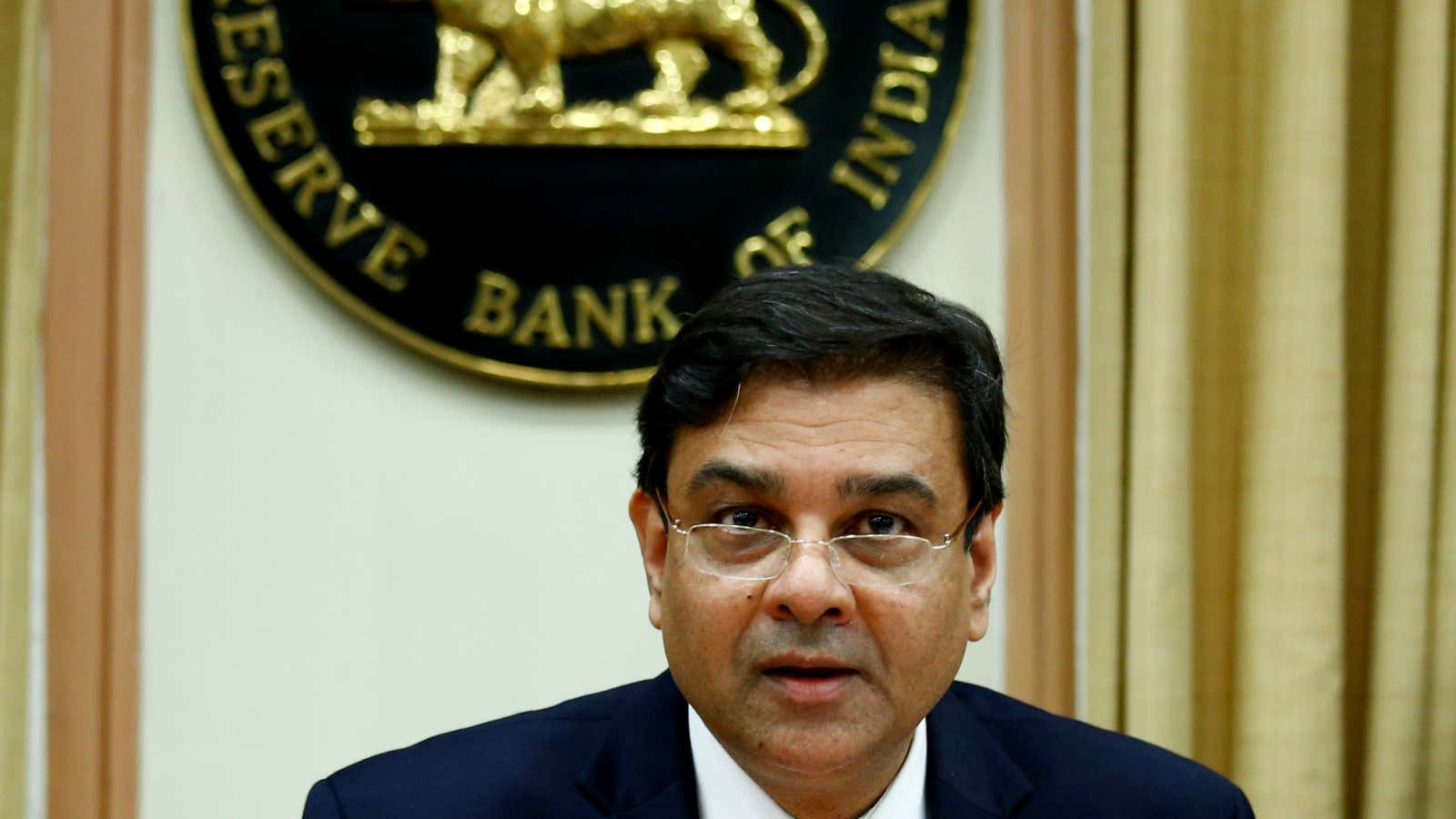Reserve Bank of India (RBI) governor Urjit Patel has resigned from his post with immediate effect.
In a statement published on the central bank’s website today (Dec. 10), Patel cited “personal reasons” for the stunning move:
On account of personal reasons, I have decided to step down from my current position effective immediately. It has been my privilege and honour to serve in the Reserve Bank of India in various capacities over the years. The support and hard work of RBI staff, officers and management has been the proximate driver of the Bank’s considerable accomplishments in recent years. I take this opportunity to express gratitude to my colleagues and Directors of the RBI Central Board, and wish them all the best for the future.
Shortly after Patel’s resignation, both prime minister Narendra Modi and finance minister Arun Jaitley responded to the sudden development.
Patel assumed charge at the RBI after former governor Raghuram Rajan’s term ended in September 2016. Patel’s term was to end in September 2019.
Tensions had been steadily building between prime minister Modi’s government and the banking regulator following the latter’s autonomy being allegedly challenged. Earlier, RBI deputy governor Viral Acharya had even warned of the “potentially catastrophic” consequences of such interference on the government’s part.
“Governments that do not respect central bank independence will sooner or later incur the wrath of financial markets, ignite (an) economic fire, and come to rue the day they undermined an important regulatory institution,” Acharya had said at an event in Mumbai on Oct. 26, after which the RBI-government tussle came out in the open.
At the end of the speech, Acharya had also thanked Patel for his suggestion to explore this theme for a speech which was on the “Importance of Independent Regulatory Institutions”.
At the peak of this crisis, in late October and early November, it was widely believed that Patel may step down. However, after a nine-hour meeting last month, the two parties called a truce. Shortly after, the RBI came out with a release detailing how the pressing issues were tackled.
Evidently, that wasn’t the case.
